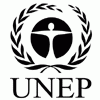Community / Land projects / Ecohealth Chair on Human and Animal Health in Protected Ecosystems of Central and Eastern Africa
Ecohealth Chair on Human and Animal Health in Protected Ecosystems of Central and Eastern Africa

€705900.4555
08/14 - 08/19
Completed
This project is part of
Implementing Organisations
Donors
Data Providers
General
This project will help establish an Ecohealth Chair in Human and Animal Health in Protected Ecosystems to improve the sustainability of conservation areas and the health of local communities, livestock, and wildlife in Central and East Africa. Threats to African wildlife habitats As more and more people move in and around Africa's wildlife conservation areas, there is increased land degradation, biodiversity loss, and health risks for both humans and animals. In East and Central Africa, a number of factors are causing social and environmental change for traditional pastoralist communities. These include population pressures and climate change. Agricultural policies are also an issue, as they have reduced access to former grazing lands and watering points. These changes are leading to sedentary settlements in conservation areas. To add to the problem, fishing communities have grown in and around national parks to exploit lake resources. This has led to more frequent interaction and conflict between human populations and wildlife. As a result, the health risks are magnified. The need for research on human and animal health Few scientific studies have validated or quantified the extent of these problems. There are also significant knowledge gaps on potential long-term effects on human and animal health, ecosystem sustainability, and costs and benefits of potential mitigation strategies. Through the Ecohealth Chair position, this project will foster a body of evidence and knowledge, research capacity, and collaboration to tackle these important challenges. The Chair will target diseases of animal origin that threaten agro-pastoralists and fisher communities living within and around the Queen Elizabeth National Park in western Uganda, a UNESCO biosphere reserve and a recognized Ramsar Convention site of global importance currently under threat by human activity. Applying ecohealth research to benefit local communities The Chair's program of research and partnership-building will be embedded within One Health Central and Eastern Africa (OHCEA), a regional network of public health and veterinary schools. A key objective is to use the Queen Elizabeth National Park as a long-term demonstration site for implementing applied ecohealth research studies that benefit local communities and the park ecosystem. This will help to develop the field of ecohealth in East and Central Africa. Research findings will contribute to evidence-based policy recommendations and ensure increased awareness among communities, local health authorities, and community-based organizations about health vulnerabilities, risks, and possible responses. The Chair will also expand One Health's disease control work to encompass relevant social, economic, and environmental dimensions. This will give the organization the expertise needed to guide more sustainable policies and livelihood practices in and around conservation areas in sub-Saharan Africa. It will also aim to scale up the effort throughout the entire OHCEA network, which will help multiply potential benefits in the six member countries and contribute to building African leadership in the emerging field of research on health, environment, and society.




